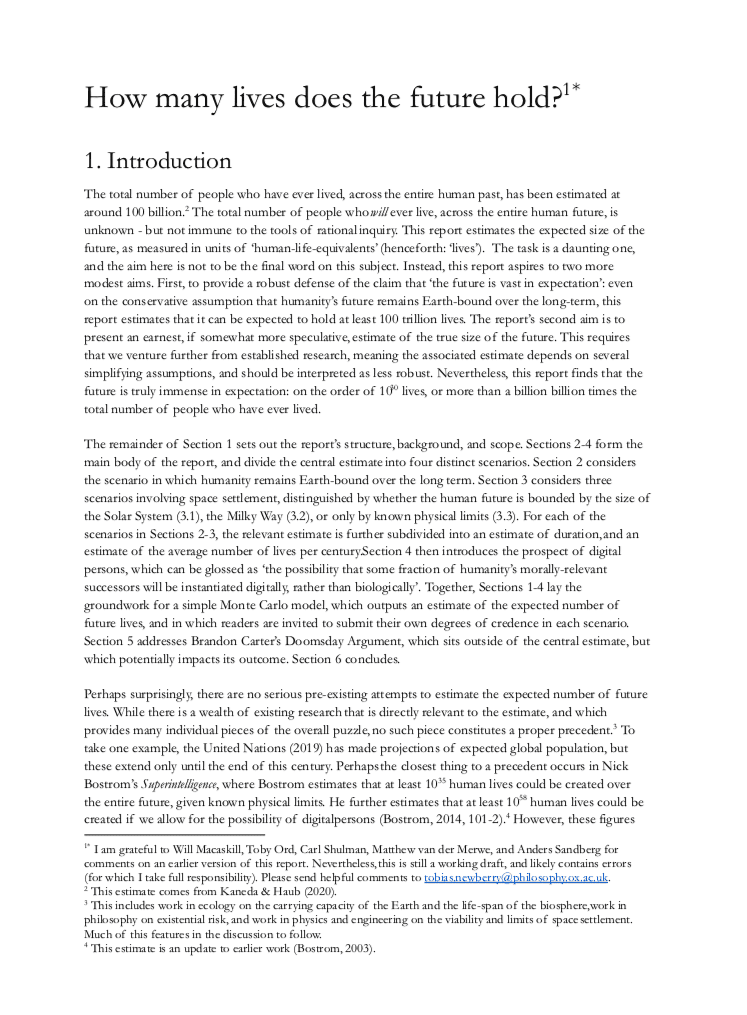How many lives does the future hold?
Toby Newberry (Future of Humanity Institute, University of Oxford)
GPI Technical Report No. T2-2021
The total number of people who have ever lived, across the entire human past, has been estimated at around 100 billion.2 The total number of people who will ever live, across the entire human future, is unknown - but not immune to the tools of rational inquiry. This report estimates the expected size of the future, as measured in units of ‘human-life-equivalents’ (henceforth: ‘lives’). The task is a daunting one, and the aim here is not to be the final word on this subject. Instead, this report aspires to two more modest aims...
Other working papers
Are we living at the hinge of history? – William MacAskill (Global Priorities Institute, Oxford University)
In the final pages of On What Matters, Volume II, Derek Parfit comments: ‘We live during the hinge of history… If we act wisely in the next few centuries, humanity will survive its most dangerous and decisive period… What now matters most is that we avoid ending human history.’ This passage echoes Parfit’s comment, in Reasons and Persons, that ‘the next few centuries will be the most important in human history’. …
Consciousness makes things matter – Andrew Y. Lee (University of Toronto)
This paper argues that phenomenal consciousness is what makes an entity a welfare subject, or the kind of thing that can be better or worse off. I develop and motivate this view, and then defend it from objections concerning death, non-conscious entities that have interests (such as plants), and conscious subjects that necessarily have welfare level zero. I also explain how my theory of welfare subjects relates to experientialist and anti-experientialist theories of welfare goods.
The Hinge of History Hypothesis: Reply to MacAskill – Andreas Mogensen (Global Priorities Institute, University of Oxford)
Some believe that the current era is uniquely important with respect to how well the rest of human history goes. Following Parfit, call this the Hinge of History Hypothesis. Recently, MacAskill has argued that our era is actually very unlikely to be especially influential in the way asserted by the Hinge of History Hypothesis. I respond to MacAskill, pointing to important unresolved ambiguities in his proposed definition of what it means for a time to be influential and criticizing the two arguments…

